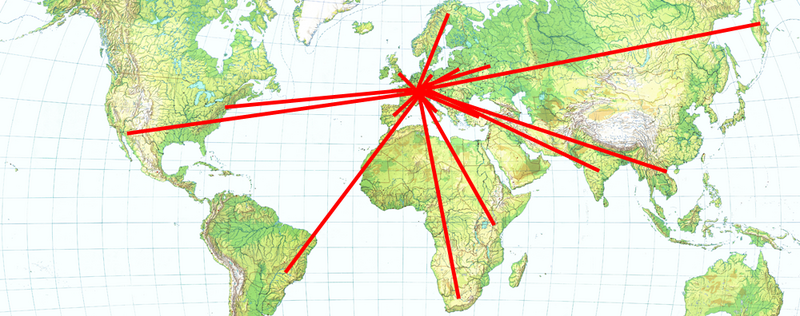The university in the world
Located at the confluence of three countries, each with their own cultural and educational systems, Basel offers optimal conditions for regional and international cooperation.
The university benefits from external impulses, which it passes on to Basel and the city’s society, while also remaining integrated into the surrounding network of political and economic interests of the city and of Switzerland as a whole.
Basel’s location at the edge of Switzerland, combined with the city’s attractiveness as a trading and educational hub, have long fostered international exchange and regional cooperation in both research and teaching.
Soon after its founding, the university attracted foreign students and teachers. In the nineteenth and twentieth centuries, institutional cooperation also intensified in the form of exchange programs, teaching projects, and research collaborations.
The importance of migrants and refugees from Eastern Europe deserves special mention here, as these newcomers have repeatedly helped shape the history of the university over the centuries.
Locally and nationally, the university has often been caught up in imperatives of city, cantonal, and federal politics, as evinced by the discussions about establishing a Swiss federal university in the eighteenth and nineteenth centuries or in the debates over the joint sponsorship of the university by the cantons of Basel-City and Basel-Countryside in the twentieth century.
The intertwining of the interests of Basel’s citizens with those of the university has been advantageous for both parties, as the university has managed to attract qualified and dedicated researchers while also improving its standing in the city. For their part, Basel residents have benefited from the prestige of the university and the professional career opportunities it has offered – though of course these were often created by the city to begin with.
More recent collaborations, such as the Seniors’ University and Children’s University, thus build on a long tradition of collaboration between the city and the university, even if the myth of a unique “Citizens’ University” in Basel has been at least partially debunked.



